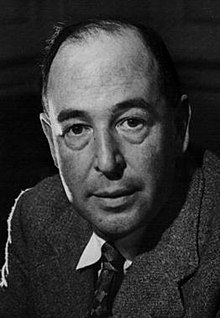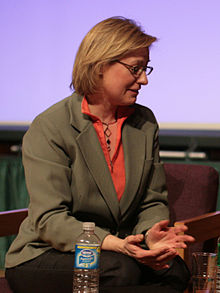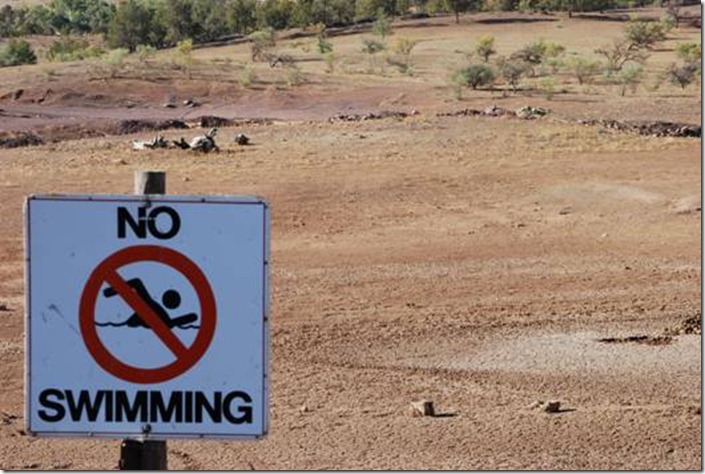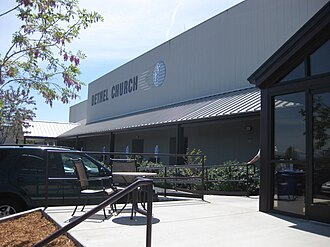Lee Strobel
By Spencer D Gear PhD
If you wanted to bring Christianity and its Bible into disrepute, how would you do it? If you go to the ‘Comments’ section of this interchange at Online Opinion, What is your view for one to worship humans? there you’ll see how some antagonists do it.
Christianity is currently the world’s largest religion with 2.22 billion followers according to the World Atlas. It includes approximately one-third of the world’s population but its numbers are declining.
 (Graph courtesy Pew Research Center, Conrad Hackett & David McClendon 2017)
(Graph courtesy Pew Research Center, Conrad Hackett & David McClendon 2017)
Beginning in the first century AD, after the life, death, burial and resurrection of Jesus Christ, Christianity spread through the preaching of Jesus’ disciples, the apostle Paul and other preachers/teachers of the Gospel. You can read about the start of the Christian Church in the Bible’s Book of Acts.
1. Christ changes people
This Gospel’s content deals with the human condition and how it can be changed – permanently: ‘But here is how God has shown his love for us. While we were still sinners, Christ died for us’ and placing our faith in Christ brings new life – eternal life. This brings changed lives.
There are many examples of those who were sinners who became saints. Manny Pacquiao, former world boxing champion and now a member of the Philippine’s Senate, was defeated by Australia’s Jeff Horn. However, Manny says ‘the best thing that has happened in my life was that I encountered God’.
In this Christianity Today interview, it was revealed that his drinking, gambling and womanising behaviour was overlooked by fans, but those sins ‘were tearing apart his marriage and family’. See his wife’s comments below.
Lee Strobel
S trobel wrote on his webpage (photo from his homepage):
trobel wrote on his webpage (photo from his homepage):
Atheist-turned-Christian Lee Strobel, the former award-winning legal editor of the Chicago Tribune, is a New York Times best-selling author of more than 40 books and curricula that have sold 14 million copies in total. He has been described in the Washington Post as “one of the evangelical community’s most popular apologists.”
Strobel was educated at the University of Missouri (Bachelor of Journalism) and Yale Law School (Master of Studies in Law). He was a journalist for 14 years at the Chicago Tribune and other newspapers, winning Illinois’ highest honor for public service journalism from United Press International. He also led a team that won UPI’s top award for investigative reporting in Illinois.
After probing the evidence for Jesus for nearly two years, Strobel became a Christian in 1981. He subsequently became a teaching pastor at three of America’s largest churches and hosted the national network TV program “Faith Under Fire.” In addition, he taught First Amendment law at Roosevelt University and was professor of Christian thought at Houston Baptist University.
In 2017, Strobel’s spiritual journey was depicted in an award-winning motion picture, “The Case for Christ,” which showed in theaters across America and around the world. The movie is still on Netflix. Strobel won national awards for his books The Case for Christ, The Case for Faith, The Case for a Creator, and The Case for Grace. His latest book is The Case for Miracles.
He and co-author Mark Mittelberg recently created the Making YOUR Case for Christ video-driven small-group curriculum, which trains Christians how to share and defend their faith. The Christian Post named Strobel one of the top seven evangelical leaders who made an impact in 2017.
Strobel and his wife, Leslie, have been married for 47 years. Their daughter, Alison, is a novelist, and their son, Kyle, is a professor of spiritual theology at the Talbot School of Theology at Biola University.[1]
C. S. Lewis
On the intellectual side of things, G.K. Chesterton had a significant influence on Lewis. As Lewis read The Everlasting Man, he appreciated Chesterton’s humor and was surprised by the power of his presentation. He began to feel that “Christianity was very sensible ‘apart from its Christianity'” (p. 130). Lewis also found that he was drawn to many other authors that had this strange Christian twist:Spenser, Milton, Johnson, MacDonald, and others. In contrast, those with whom he theoretically agreed-Voltaire, Gibbon, Mill, Wells, and Shaw-seemed thin and “tinny.” On top of this, some of the brightest, most intelligent at Oxford were also “supernaturalists.” People like Neville Coghill, Hugo Dyson, and J.R.R. Tolkien were kindred spirits and also Christians. One by one, the arguments that were obstacles to faith were removed.
Once while riding on a bus in Oxford, Lewis had the sense that he was “holding something at bay, or shutting something out” (p. 131). He could either open the door or let it stay shut, but to open the door “meant the incalculable.” He finally submitted himself to God, the most “dejected and reluctant convert” in all England. This belief in God happened in 1929, but it was not until 1931 that he surrendered himself to Christ.
When Lewis finally came to Christ, he at last resolved the “dialectic of desire” he had been struggling with since childhood. Downing points out that Lewis’s first experience at Oxford was highly symbolic. When he exited the Oxford railway station for the first time, he was loaded down with luggage. Mistakenly, he started walking down the street in the wrong direction. As he kept walking, he grew disappointed at the rather plain houses and shops he found. Only when he reached the edge of town did he turn around to see the beautiful spires and towers that constitute Oxford. In telling this story, Lewis says, “This little adventure was an allegory of my whole life.” Boyhood was a “fall” from the joys of childhood. Growing up was even more of following the wrong way. The “path less taken” was a return to wonder and glory and a rejection of the mundane inanities of modern life (p. 153). He needed to look back in order to go forward. Good only comes by “undoing evil;” a wrong sum can be put right.
His faith changed his direction from “self-scrutiny” to “self-forgetfulness.” He rejected the “unsmiling concentration on the self” and was “taken out of my self” to love God and others (p. 156). Downing says: “The real story of Lewis’s conversion, then, is not about dramatic changes in a man’s career but about dramatic changes in the man.”[2]
Hugh Ross (astrophysicist)

Part of his story is:
I delayed making a personal commitment of my life to Christ. Although I knew God with my mind, I struggled to surrender my will to him. What if God changed the direction of my life? What if the people around me found out about my new beliefs?
As I continued to wrestle with the decision, my grades began to drop, and I discovered the meaning of Romans 1:21, which warns that rejecting God’s truth results in a darkening of the mind. After two months of vacillation, I finally turned my whole self to God and signed the “decision statement” at the back of my now well-worn Bible, acknowledging my life now belonged to Jesus Christ, my Creator and Savior.
With the help of a provincial scholarship and a National Research Council (NRC) of Canada fellowship, I went on to complete my undergraduate degree in physics at the University of British Columbia and my graduate degrees in astronomy at the University of Toronto.[3]
Alister McGrath
Alister McGrath
Christianity Today stated of Oxford University Professor McGrath:
The relationship between Christianity and science is hotly debated, and both believers and skeptics have appealed to Albert Einstein to buttress their positions. Believers point to Einstein’s many references to God while skeptics note his rejection of revealed religion. Alister McGrath, Andreas Idreos Professor of Science and Religion at Oxford University, has written a new book on the famous physicist, A Theory of Everything (That Matters): A Brief Guide to Einstein, Relativity, and His Surprising Thoughts on God (Tyndale).
McGrath also recently published Narrative Apologetics: Sharing the Relevance, Joy, and Wonder of the Christian Faith (Baker), in which he argues that stories are an important but often overlooked resource for commending Christianity. In both books, he contends that the Christian faith has a better story to tell than secular alternatives and offers great explanatory power.
Christopher Reese spoke with McGrath about the interconnected topics of faith, science, and apologetics.[4]
Rosalind Picard
Rosalind Picard
Rosalind Picard at the Veritas Forum Science, Faith, and Technology session on “Living Machines: Can Robots Become Human?”
In the British magazine, Premier Christianity, there was an article by Ruth Jackson, “Professor Rosalind Picard: ‘I used to think religious people had thrown their brains out the window.’ She was asked:
How did you become a Christian?
I grew up in a family that never went to church or talked about religion. I thought people who were religious had thrown their brains out the window. I used to babysit for this really cool family – he was a doctor and she was really neat – while they went to Bible studies. They invited me to church and I told them I was sick. Then they invited me again and I told them I was sick. Faking sickness to a doctor really wasn’t working! They caught on that I didn’t want to go and told me that what I believe matters. They asked if I’d read the Bible. I was a straight A student – one of those obnoxious kids who thought myself really smart. So, I thought I should probably read the bestselling book of all time. I agreed to take their advice to read the book of Proverbs, one a day for a month. I saw there was all this wisdom. Not wacky, made-up gobbledygook, but stuff I could learn from. I was humbled. Then I set out to read the whole Bible. And that changed me.
It took time, because I did not want to believe in God. And I resisted. But as I read the Bible, I felt God talking to me. I eventually went to church and the pastor challenged us to consider inviting Jesus to be Lord of our life. That sounded a little wacky to me. But I decided to run it as a scientific experiment: if it’s really stupid, it won’t make any difference, it doesn’t really matter. And if it makes a difference, wouldn’t it be better to have the mind of the whole universe, who knows everything, as Lord of my life? So, I took that step and it made an enormous difference. This load was lifted, I felt amazing peace (25 May 2021).
She is a leading expert in Artificial Intelligence.
Nicole Cliffe: How God Messed Up My Happy Atheist Life
She wrote:
(Nicole Cliffe photo courtesy Christianity Today)
I became a Christian on July 7, 2015, after a very pleasant adult life of firm atheism. I’ve found myself telling “the story” when people ask me about it—slightly tweaked for my audience, of course. When talking to non-theists, I do a lot of shrugging and “Crazy, right? Nothing has changed, though!” When talking to other Christians, it’s more, “Obviously it’s been very beautiful, and I am utterly changed by it.” But the story has gotten a little away from me in the telling.
As an atheist since college, I had already mellowed a bit over the previous two or three years, in the course of running a popular feminist website that publishes thoughtful pieces about religion. Like many atheists (who are generally lovely moral people like my father, who would refuse to enter heaven and instead wait outside with his Miles Davis LPs), I started out snarky and defensive about religion, but eventually came to think it was probably nice for people of faith to have faith. I held to that, even though the idea of a benign deity who created and loved us was obviously nonsense, and all that awaited us beyond the grave was joyful oblivion.
I know that sounds depressing, but I found the idea of life ending after death mildly reassuring in its finality. I had started to meet more people of faith, having moved to Utah from Manhattan, and thought them frequently charming in their sweet delusion. I did not wish to believe. I had no untapped, unanswered yearnings. All was well in the state of Denmark. And then it wasn’t.
What I Already Knew
There are two different starting points to my conversion, and sometimes I omit the first one, because I think it gives people an answer I don’t want them to have. It is a simple story: I was going through a hard time. I was worried about my child. One time I said “Be with me” to an empty room. It was embarrassing. I didn’t know why I said it, or to whom. I brushed it off, I moved on, the situation resolved itself, I didn’t think about it again. I know how people hear that story: Oh, of course, Nicole was struggling and needed a larger framework for her life! That’s part of the truth, but it’s not the whole truth.
The second starting point is usually what I lead with. I was surfing the Internet and came across John Ortberg’s CT obituary for philosopher Dallas Willard. John’s daughters are dear friends, and I have always had a wonderful relationship with their parents, who struck me as sweetly deluded in their evangelical faith, so I clicked on the article.
Somebody once asked Dallas if he believed in total depravity.
“I believe in sufficient depravity,” he responded immediately.
What’s that?
“I believe that every human being is sufficiently depraved that when we get to heaven, no one will be able to say, ‘I merited this.’ ”[5]
Nicole Cliffe is co-founder and co-editor of the website, “The Toast,” and lives in Utah.
Aleksandr Solzhenitsyn
Aleksandr Solzhenitsyn
 Aleksandr Solzhenitsyn in February 1974 (photo courtesy Wikipedia).
Aleksandr Solzhenitsyn in February 1974 (photo courtesy Wikipedia).
Christian Life Ministries wrote:
When Alexander Solzhenitsyn received the Templeton Award in 1983, he began his address with these words:
Over half a century ago, while I was still a child, I recall hearing a number of older people offer the following explanation for the great disasters that had befallen Russia: they said,
“Men have forgotten God; that’s why all this has happened.”
Since then I have spent well near fifty years working on the history of our revolution; in the process I have read hundreds of books, collected hundreds of personal testimonies, and have already contributed eight volumes of my own towards the effort of clearing away the rubble left by that upheaval. But if I were asked today to formulate as concisely as possible the main cause of the ruinous revolution that has swallowed up sixty million of our people, I could not put it more accurately than to repeat:
“Men have forgotten God; that’s why all this has happened.”
Sixty Million people suffered and died from deprivation, weakness, starvation, famine, cruelty or imprisonment in the concentration camps of Siberia. Solzhenitsyn said that he could not put it more accurately than to repeat:
“Men have forgotten God; that’s why all this has happened.”[6]
How Oxford and Peter Singer drove me from atheism to Jesus (Sarah Irving-Stonebraker)
 (photo courtesy Western Sydney University)
(photo courtesy Western Sydney University)
Sarah is a Senior Lecturer in Modern European History,
Humanities (Arts)
Sarah wrote:
I grew up in Australia, in a loving, secular home, and arrived at Sydney University as a critic of “religion.” I didn’t need faith to ground my identity or my values. I knew from the age of eight that I wanted to study history at Cambridge and become a historian. My identity lay in academic achievement, and my secular humanism was based on self-evident truths. As an undergrad, I won the University Medal and a Commonwealth Scholarship to undertake my Ph.D. in History at King’s College, Cambridge. King’s is known for its secular ideology and my perception of Christianity fitted well with the views of my fellow students: Christians were anti-intellectual and self-righteous.
After Cambridge, I was elected to a Junior Research Fellowship at Oxford. There, I attended three guest lectures by world-class philosopher and atheist public intellectual, Peter Singer. Singer recognised that philosophy faces a vexing problem in relation to the issue of human worth. The natural world yields no egalitarian picture of human capacities. What about the child whose disabilities or illness compromises her abilities to reason? Yet, without reference to some set of capacities as the basis of human worth, the intrinsic value of all human beings becomes an ungrounded assertion; a premise which needs to be agreed upon before any conversation can take place.
I remember leaving Singer’s lectures with a strange intellectual vertigo; I was committed to believing that universal human value was more than just a well-meaning conceit of liberalism.
I remember leaving Singer’s lectures with a strange intellectual vertigo; I was committed to believing that universal human value was more than just a well-meaning conceit of liberalism. But I knew from my own research in the history of European empires and their encounters with indigenous cultures, that societies have always had different conceptions of human worth, or lack thereof. The premise of human equality is not a self-evident truth: it is profoundly historically contingent. I began to realise that the implications of my atheism were incompatible with almost every value I held dear.
One afternoon, I noticed that my usual desk in the college library was in front of the Theology section. With an awkward but humble reluctance, I opened a book of sermons by philosopher and theologian Paul Tillich. As I read, I was struck at how intellectually compelling, complex, and profound the gospel was. I was attracted, but I wasn’t convinced.
A few months later, near the end of my time at Oxford, I was invited to a dinner for the International Society for the Study of Science and Religion. I sat next to Professor Andrew Briggs, a Professor of Nanomaterials, who happened to be a Christian. During dinner, Briggs asked me whether I believed in God. I fumbled. Perhaps I was an agnostic? He responded, “Do you really want to sit on the fence forever?” That question made me realise that if issues about human value and ethics mattered to me, the response that perhaps there was a God, or perhaps there wasn’t, was unsatisfactory.
With the freedom of being an outsider to American culture, I was able to see an active Christianity in people who lived their lives guided by the gospel: feeding the homeless every week, running community centres, and housing and advocating for migrant farm laborers.
In the Summer of 2008, I began a new job as Assistant Professor at Florida State University, where I continued my research examining the relationship between the history of science, Christianity, and political thought. With the freedom of being an outsider to American culture, I was able to see an active Christianity in people who lived their lives guided by the gospel: feeding the homeless every week, running community centres, and housing and advocating for migrant farm laborers.
One Sunday, shortly before my 28th birthday, I walked into a church for the first time as someone earnestly seeking God. Before long I found myself overwhelmed. At last I was fully known and seen and, I realised, unconditionally loved – perhaps I had a sense of relief from no longer running from God. A friend gave me C.S. Lewis’s Mere Christianity, and one night, after a couple months of attending church, I knelt in my closet in my apartment and asked Jesus to save me, and to become the Lord of my life.[7]
2. Resistance from everyday people
I blog on Christian forums and meet open and honest people who have trouble with believing in Christ and they question the Bible’s reliability. There are others who are hard-headed atheists who won’t listen to any reasonable argument in support of Christianity.
Foxy tried it on me in this online blog:
Not everyone believes that what is written in the Bible is the literal word of God. After all The Bible was written by men and it’s their interpretations that are recorded. Therefore can you really claim that it is what God stated? Isn’t it just what you happen to believe? Therefore you are not in any position to preach to any one else. You are merely preaching your interpretations and beliefs. Other people have their own and don’t need you to educate them.
My reply was: Nice try, Foxy! Not one line of your response had anything to do with the content of what I wrote.
So, you committed a red herring logical fallacy. It is faulty reasoning because you attempted to redirect my argument to your doubting Thomas views about the Bible, God and interpretation. This is a deliberate diversion from my topic.
When you engage in the use of a logical fallacy, this flaw in reasoning undermines the validity of your arguments. It makes it impossible to have a productive conversation.
I could provide an answer to all of your questions and assertions, but that wouldn’t address the content of my post, to which you replied.
You have given me a few of your anti-Bible presuppositions in your post. Why don’t you use a few of these in an article for Online Opinion? Slam dunk God, the Bible and interpretation.
Then we can have a discussion that is related to your topic.[8]
Foxy’s response was:
On the contrary – it was you were gave the Bible references. I merely stated what many theologians have stated. And yet you took that as an attack of some sort on the Bible. It wasn’t at all and what I personally believe or do not believe you have no way of knowing therefore your assumptions are not correct. But I agree that a rational, well reasoned intelligent discussion with you it seems would be pointless.
Cheers.[9]
My response was:
Foxy,
Again you’ve not dealt with the content of what I wrote about your use of a red herring fallacy against me.We cannot have a rational discussion when you continue to use this logical fallacy. It is your flawed reasoning that is contributing to this.[10]
Foxy came back:
OzSpen,
Could you be a tad more specific.
Exactly what red-herring fallacy are you referring
to that I provided?
Or are you stating that your quotes from the Bible
are a red herring fallacy?[11]
I replied:
Foxy,
You don’t seem to understand the nature of the red herring logical fallacy you committed: See: https://www.logicallyfallacious.com/tools/lp/Bo/LogicalFallacies/150/Red_Herring
When you responded to my post with very different content and did not address what I wrote, you changed topics to address what you wanted to say. Thus, it you committed the red herring fallacy.
It had nothing to do with my quoting Bible verses. It was what you stated in response to me.[12]
You can read my further discussion with Foxy and others in this thread on the Bible and rejection of it as God’s Word.
3. Antagonism from atheists and agnostics
The trainer of Manny Pacquiao, Freddie Roach, who has trained him for 15 years, says he is an agnostic/atheist, so he has seen Pacquiao’s change firsthand.
He told The Guardian, Australia Edition (5 October 2014),
“I’m happy because I found the right way, salvation, born again. We are required to be born again, all of us. Christ said unless we are born again we cannot enter the kingdom of God. So it’s very important to me. Jesus Christ said: ‘I am the way and the truth and the life. No one comes to the Father except through me.’ There is no other way. The only way is through Jesus.”
“Pacquiao once was not so righteous. He once was an all-night hound dog, taking his pleasure where he pleased, ignoring all advice to respect the sanctity of his marriage vows and determined to squeeze as much fun from life as was available to someone who was born into grinding poverty. Those were his hardcore inclinations until only a few years ago”.
Eminent scientist and atheist/agnostic, Richard Dawkins, has been called the ‘High Priest of Unbelief’. His view is that
not only do we need no God to explain the universe and life. God stands out in the universe as the most glaring of all superfluous sore thumbs. We cannot, of course, disprove God, just as we can’t disprove Thor,[13] fairies, leprechauns and the Flying Spaghetti Monster. But, like those other fantasies that we can’t disprove, we can say that God is very very improbable (emphasis added).[14]
Is that so? Science can explain nature but explanation has no creative power. John Lennox, professor of mathematics at Oxford University and a Christian, responded to this view: ‘Physical laws on their own cannot create anything; they are merely a description of what normally happens under certain given conditions’.
5. Disinterest from those who don’t give a hoot about religion
There’s a story in the New Statesman:
Jonathan Derbyshire writes: Jeremy Bentham, his disciple John Stuart Mill once wrote, would always ask of a proposition or belief, “Is it true?” By contrast, Bentham’s contemporary Samuel Taylor Coleridge, Mill observed, thought “What is the meaning of it?” was a much more interesting question.
Today’s New Atheists –Richard Dawkins, Sam Harris, Daniel Dennett and the late Christopher Hitchens principal among them – are the heirs of Bentham, rather than Coleridge. For them, religion – or the great monotheistic faiths, at any rate – are bundles of beliefs (about the existence of a supernatural being, the origins of the universe and so on) whose claims to truth don’t stand up to rational scrutiny. And once the falsity of those beliefs has been established, they imply, there is nothing much left to say.
The New Atheists remind one of Edward Gibbon, who said of a visit to the cathedral at Chartres: “I paused only to dart a look at the stately pile of superstition and passed on.” They glance at the stately pile of story and myth bequeathed to humanity by religion and quickly move on, pausing only to ask of the benighted millions who continue to profess one faith or another that they keep their beliefs to themselves and don’t demand that they be heard in the public square.[15]
6. Shame Christians by using logical fallacies
Foxy did it above with his red herring logical fallacy.
Jayb wrote:
OzSpen: When the Gospel was proclaimed after Jesus’ death and resurrection,
I think you better do some reading up on History. The Gospels weren’t written until about 100 years after the death of Yeshua (Jesus) None of the people who wrote the Gospels had any direct contact with Yeshua. . . I guess you gotta be a Southern Baptist, Ay.[16]
Jayb committed the argument from silence fallacy as I explained:
<<OzSpen: When the Gospel was proclaimed after Jesus’ death and resurrection, I think you better do some reading up on History>>.
It’s too late to tell me I need to read up on history. I’ve taught Church history and its place in secular history – at the college level. I have a university PhD in NT, with emphasis on the historical Jesus.
You argue from silence (which is a logical fallacy) when you don’t know my background. You stated:
<<The Gospels weren’t written until about 100 years after the death of Yeshua (Jesus) None of the people who wrote the Gospels had any direct contact with Yeshua>>.
That is false. John is described as ‘the disciple whom Jesus loved’ (John 21:20).
Your claim of no Gospel written before AD 100 is challenged. Dr Paul Barnett is a visiting fellow in ancient history at Macquarie University, Sydney. His research indicates that:
** ‘by the late fifties a number of written texts – Mark, Q and L (and others?) – were in existence. . . . We do not know precisely when these traditions reached written form’ (Paul Barnett 1999. Jesus & the Rise of Early Christianity, InterVarsity Press, pp 380).
** The infamous John A T Robinson of Honest to God fame has published some magnificent research on Redating the New Testament.
After the research, he concluded that all NT books were written before AD 70. They began with the Book of James (ca. 47-48) and concluded with the Book of Revelation (ca. late 68-70). That challenges your historical-critical belief that the Gospels weren’t written until after AD 100.
<<All the branches of Christianity established by the Apostles were eliminated by the Pauline branch after the Nicene Council by the Pauline Bishops>>.
That’s your hypothesis that needs to be verified or falsified through research.
<<I guess you gotta be a Southern Baptist, Ay.>>
Again you argue from lack of knowledge.[17]
See my other articles dealing with this topic:
![]() Logical fallacies hijack debate and discussion[1]
Logical fallacies hijack debate and discussion[1]
![]() Logical fallacies used to condemn Christianity
Logical fallacies used to condemn Christianity
![]() Christians and their use of logical fallacies
Christians and their use of logical fallacies
![]() One writer’s illogical outburst
One writer’s illogical outburst
![]() Why Christianity is NOT a religious myth promoted by dim-witted theists
Why Christianity is NOT a religious myth promoted by dim-witted theists
7. Notes
[1] The Lee Strobel Center, Colorado Christian University, accessed 12 September 2021, https://www.ccu.edu/strobelcenter/.
[2] A book review by Art Lindsley of The Most Reluctant Convert: C.S. Lewis’s Journey to Faith, accessed 12 September 2021, https://www.cslewisinstitute.org/node/48. Page numbers refer to this review.
[3] “My Story: Dr Hugh Ross,” CRU, accessed 12 September 2021, https://www.cru.org/us/en/how-to-know-god/my-story-a-life-changed/hugh-ross.html.
[4] Christianity Today, “Alister McGrath: Both Science and Stories Declare God’s Glory,” December 4, 2019, accessed 12 September 2021, https://www.christianitytoday.com/ct/2019/december-web-only/alister-mcgrath-science-and-stories-declare-gods-glory.html.
[5] Nicole Cliffe 2016, Christianity Today, “Nicole Cliffe: How God Messed Up My Happy Atheist Life,” May 20, accessed 12 September 2021, https://www.christianitytoday.com/ct/2016/june/nicole-cliffe-how-god-messed-up-my-happy-atheist-life.html.
[6] Christian Life Ministries, Scarborough WA, Australia, “A Man of Enormous Christian Faith,”
[7] Sarah Irving-Stonebraker 2017.The Veritas Forum, “How Oxford and Peter Singer drove me from atheism to Jesus.”
[8] Posted by OzSpen, Thursday, 5 July 2018 5:29:03 PM.
[9] Posted by Foxy, Thursday, 5 July 2018 6:15:54 PM.
[10] Posted by OzSpen, Thursday, 5 July 2018 8:50:29 PM.
[11] Posted by Foxy, Friday, 6 July 2018 11:42:20 AM.
[12] Posted by OzSpen, Friday, 6 July 2018 5:38:58 PM.
[13] Thor was an ‘American comic strip superhero created for Marvel Comics by writer Stan Lee and artist Jack Kirby. The character derived from a Germanic god of the same name’ (Encyclopaedia Britannica 2020. s.v. Thor).
[14] R Dawkins 2006. Edge (online). Why there almost certainly is no God, 25 October. Available at: https://www.edge.org/conversation/richard_dawkins-why-there-almost-certainly-is-no-god (Accessed 13 June 2020).
[15] New Statesman 2013, “After God: What can atheists learn from believers?” 27 March, accessed 12 September 2021, https://www.newstatesman.com/culture/culture/2013/03/after-god-what-can-atheists-learn-believers.
[16] Posted by Jayb, Friday, 6 July 2018 11:25:05 AM
|
[17] Posted by OzSpen, Friday, 6 July 2018 7:30:59 PM.
Copyright © 2021 Spencer D. Gear. This document last updated at Date: 12 September 2021. |









![clip_image002[5] clip_image002[5]](/wp-content/uploads/2019/05/clip_image0025_thumb.jpg)








![clip_image016[1] clip_image016[1]](https://i0.wp.com/truthchallenge.one/wp-content/uploads/2019/05/clip_image0161_thumb.jpg?resize=136%2C102&ssl=1)

























